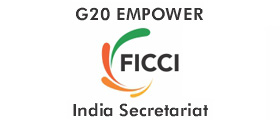In 2015, the Indian government launched the Save Girls, Educate Girls (Beti Bachao, Beti Padhao) programme to bring about awareness in the Indian society, especially in states where the sex ratio at birth was very highly skewed in favour of sons, of girls’ right to study and live a fulfilled life. The gross enrolment ratio (GER) of girls in secondary education has increased from 75.51% in 2014-15 to 79.46% in 2020-21.
The government had also introduced a Savings Scheme (Sukanya Samridhi Account Scheme) in 2015, to encourage parents to save for their daughters’ future education and marriage, by offering a high interest rate on accounts opened under the scheme. Approximately 2.73 crore (27.3 million) accounts have been opened since the launch of the scheme.
A Gender Inclusion Fund was introduced in the National Education Policy (2020), with an aim to give girls access to high-quality and equitable educational opportunities. The fund aims to close all gender gaps in terms of opportunities for girls. Its aim is to encourage all girls to enrol in schools and opt for higher studies with the help of free textbooks and uniforms, stipends, self-defence trainings, vending machines dispensing sanitary pads, and building their leadership skills through debates and discussions. Under this initiative, states can also fund and expand successful community-based initiatives that address local obstacles to girls' education.
Under a Holistic Education Scheme (Samagra Shiksha), the government provides for a residential school facility (Kasturba Gandhi Balika Vidyalayas (KGBVs)) for underprivileged girls in grades 6 through 12. Samagra Shiksha makes provisions for upgrading/converging the existing residential schools at upper primary level and girls' hostels at secondary/senior secondary level. A total of 5,627 KGBVs have been sanctioned under the scheme as of 28.02.2022, in which 6,65,130 girls have been enrolled.
The Scheme for Empowering Girls in STEM (Vigyan Jyoti Programme) is also currently addressing the underrepresentation of women in different fields of Science, Technology, Engineering and Mathematics (STEM) in the country. The programme selects girl candidates at the school level (Class 9-12) and encourages them to pursue higher education and career in STEM. It has been running successfully in 100+ schools since 2019.
The WISE-KIRAN (Knowledge Involvement in Research Advancement through Nurturing) Scheme is a dedicated scheme to guarantee the participation of women in the field of science and technology. Over the past three years, several programmes under the WISE-KIRAN Scheme have benefited about 1,040 women scientists, over 12,000 meritorious girls in classes 9 through 12, and about 10,000 women at the grassroots level from various states across the nation.

